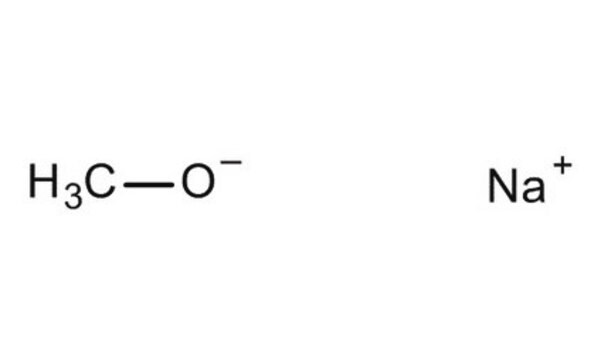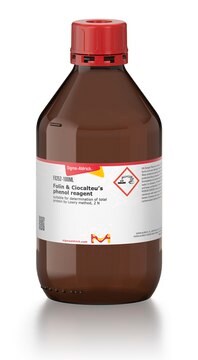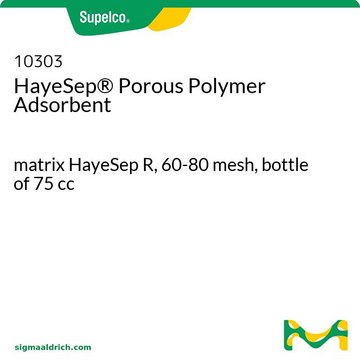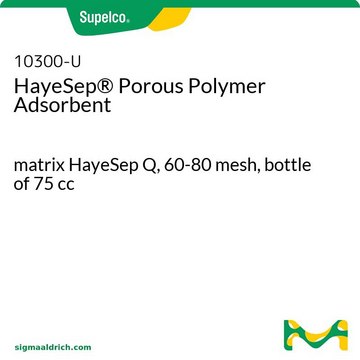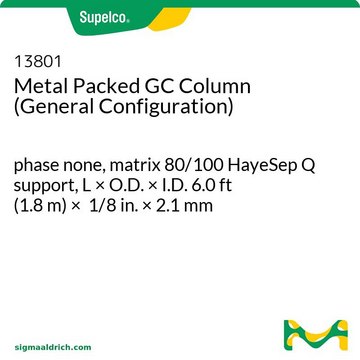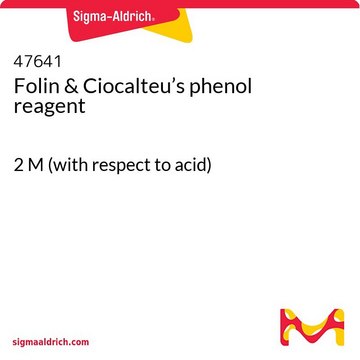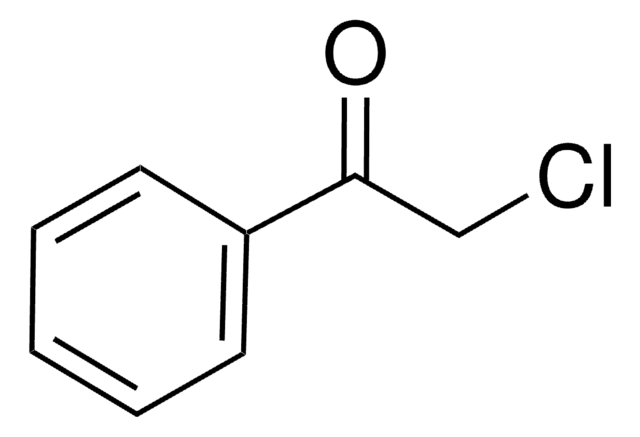10306
HayeSep® Porous Polymer Adsorbent
matrix HayeSep S, 60-80 mesh, bottle of 75 cc
About This Item
Productos recomendados
Formulario
solid
envase
bottle of 75 cc
fabricante / nombre comercial
Hayes Separation Inc
Parámetros
250 °C temp. limit
técnicas
gas chromatography (GC): suitable
superficie
~583 m2/g
Matriz
HayeSep S
tamaño de partícula
60-80 mesh
densidad
~0.33 g/mL (free fall density)
¿Está buscando productos similares? Visita Guía de comparación de productos
Descripción general
For more information about any of our adsorbents, please visit sigma-aldrich.com/adsorbents
Aplicación
Información legal
Código de clase de almacenamiento
11 - Combustible Solids
Clase de riesgo para el agua (WGK)
WGK 3
Punto de inflamabilidad (°F)
Not applicable
Punto de inflamabilidad (°C)
Not applicable
Equipo de protección personal
Eyeshields, Gloves, type N95 (US)
Elija entre una de las versiones más recientes:
Certificados de análisis (COA)
It looks like we've run into a problem, but you can still download Certificates of Analysis from our Documentos section.
Si necesita más asistencia, póngase en contacto con Atención al cliente
¿Ya tiene este producto?
Encuentre la documentación para los productos que ha comprado recientemente en la Biblioteca de documentos.
Nuestro equipo de científicos tiene experiencia en todas las áreas de investigación: Ciencias de la vida, Ciencia de los materiales, Síntesis química, Cromatografía, Analítica y muchas otras.
Póngase en contacto con el Servicio técnico